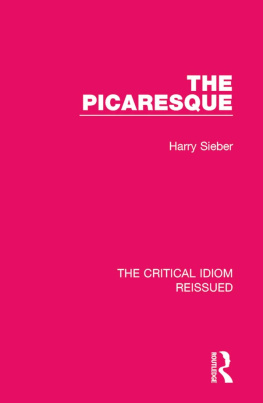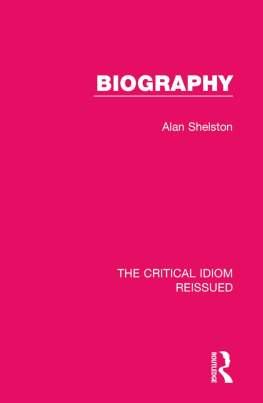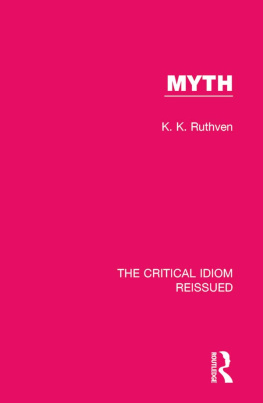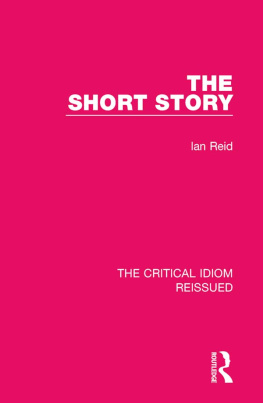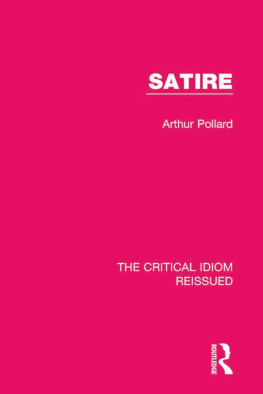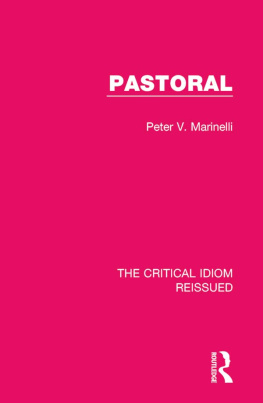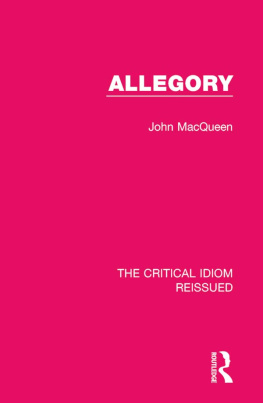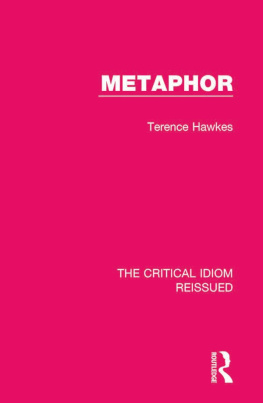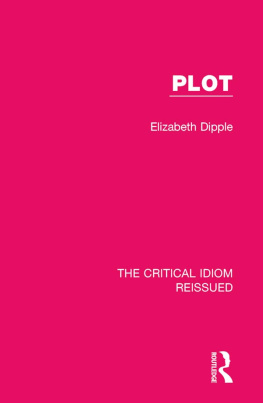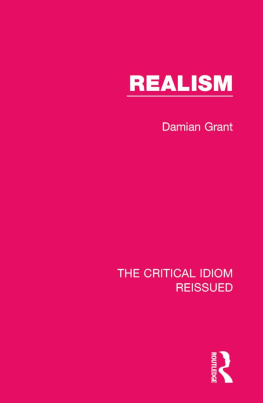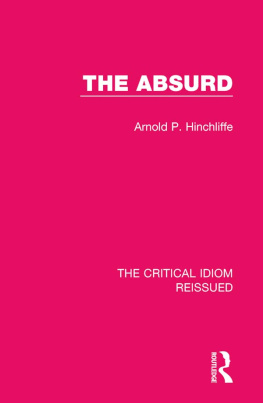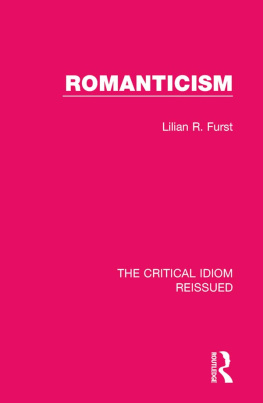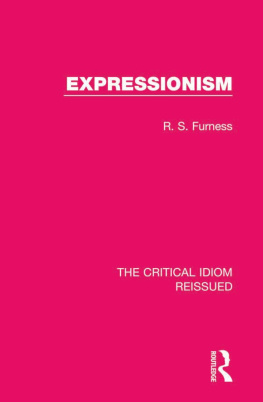Table of Contents
Guide
Print Page Numbers
THE CRITICAL IDIOM REISSUED
Volume 31
THE PICARESQUE
THE PICARESQUE
HARRY SIEBER
First published in 1977 by Methuen & Co Ltd
This edition first published in 2018
by Routledge
2 Park Square, Milton Park, Abingdon, Oxon OX14 4RN
and by Routledge
711 Third Avenue, New York, NY 10017
Routledge is an imprint of the Taylor & Francis Group, an informa business
1977 Harry Sieber
All rights reserved. No part of this book may be reprinted or reproduced or utilised in any form or by any electronic, mechanical, or other means, now known or hereafter invented, including photocopying and recording, or in any information storage or retrieval system, without permission in writing from the publishers.
Trademark notice: Product or corporate names may be trademarks or registered trademarks, and are used only for identification and explanation without intent to infringe.
British Library Cataloguing in Publication Data
A catalogue record for this book is available from the British Library
ISBN: 978-1-138-21971-7 (Set)
ISBN: 978-1-315-26975-7 (Set) (ebk)
ISBN: 978-1-138-23378-2 (Volume 31) (hbk)
ISBN: 978-1-315-29963-1 (Volume 31) (ebk)
Publishers Note
The publisher has gone to great lengths to ensure the quality of this reprint but points out that some imperfections in the original copies may be apparent.
Disclaimer
The publisher has made every effort to trace copyright holders and would welcome correspondence from those they have been unable to trace.
The Picaresque
Harry Sieber
First published 1977
by Methuen & Co Ltd
11 New Fetter Lane London EC4P 4 EE
1977 Harry Sieber
ISBN 0 416 82710 1 Hardback
ISBN 0 416 82720 9 Paperback
This title is available in both hardback and paperback editions. The paperback edition is sold subject to the condition that it shall not, by way of trade or otherwise, be lent, resold, hired out, or otherwise circulated without the publishers prior consent in any form of binding or cover other than that in which it is published and without a condition including this condition being imposed on the subsequent purchaser.
Distributed in the USA by
HARPER & ROW PUBLISHERS INC
BARNES & NOBLE IMPORT DIVISION
Para Antonio Recio Gago,
pcaro de Crdoba y
camarero de don Bigote
Contents
The volumes composing the Critical Idiom deal with a wide variety of key terms in our critical vocabulary. The purpose of the series differs from that served by the standard glossaries of literary terms. Many terms are adequately defined for the needs of students by the brief entries in these glossaries, and such terms do not call for attention in the present series. But there are other terms which cannot be made familiar by means of compact definitions. Students need to grow accustomed to them through simple and straightforward but reasonably full discussions. The main purpose of this series is to provide such discussions.
Many critics have borrowed methods and criteria from currently influential bodies of knowledge or belief that have developed without particular reference to literature. In our own century, some of them have drawn on art-history, psychology, or sociology. Others, strong in a comprehensive faith, have looked at literature and literary criticism from a Marxist or a Christian or some other sharply defined point of view. The result has been the importation into literary criticism of terms from the vocabularies of these sciences and creeds. Discussions of such bodies of knowledge and belief in their bearing upon literature and literary criticism form a natural extension of the initial aim of the Critical Idiom.
Because of their diversity of subject-matter, the studies in the series vary considerably in structure. But all authors have tried to give as full illustrative quotation as possible, to make reference whenever appropriate to more than one literature, and to write in such a way as to guide readers towards the short-bibliographies in which they have made suggestions for further reading.
John D. Jump
University of Manchester
Picaresque: Belonging or relating to rogues or knaves: applied esp. to a style of literary fiction dealing with the adventures of rogues, chiefly of Spanish origin. OED
The word picaresque seems to have shared the same fate as other literary, critical and descriptive terms such as conceit, irony, satire, naturalism, classicism and romanticism, in that attempts at precise definition have produced more confusion than understanding. The Oxford English Dictionary, while in no sense the ultimate authority, suggests three essential characteristics which help to locate a point of departure. First, the picaresque is a literary phenomenon, a work of fiction which is concerned with the habits and lives of rogues. Secondly, it is a style of fiction, that is, a kind or type of work which is distinguishable from other fictional styles. And third, its origins are found in Spain, implying that it has a history whose genesis can be located in space and time.
Few definitions of the picaresque have improved on the brief description found in the OED. In 1895 Fonger de Haan (An Outline History of the Novela Picaresca in Spain, not published until 1903) defined picaresque fiction as the autobiography of a pcaro, a rogue, and in that form a satire upon the conditions and persons of the time that gives it birth (p. 1). He makes two important additions to the OED account, seeing it as an autobiography and its style as a form of satire, an idea recently taken up and fully explored by Ronald Paulson in The Fictions of Satire, 1967. Soon after de Haan had defended his dissertation at Johns Hopkins, Frank Wadleigh Chandler presented his Ph.D. thesis at Columbia University. The first part, The Picaresque Novel in Spain, was published with the title, Romances of Roguery: An Episode in the History of the Novel, 1899. Chandlers book on the picaresque novel is still viewed, particularly by non-Hispanists, as the best authority on the subject. His description of the rogue narrator, the

